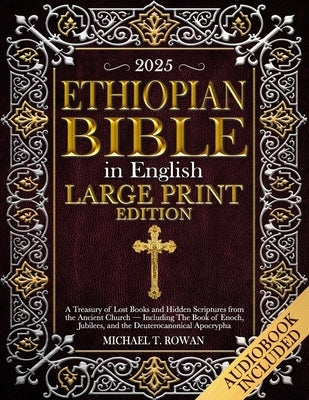Understanding History Through Biographies

History is a fascinating tapestry woven with countless narratives, each thread representing the lives of individuals who have shaped our world. Among the most engaging ways to explore this tapestry is through biographies. Understanding history through biographies allows us to delve into the personal stories behind historical events, providing a richer, more nuanced understanding of the past. In this article, we will explore the significance of biographies in historical study, their benefits, and how they can offer unique insights into history.
The Power of Personal Narratives

Biographies bring history to life by focusing on the personal narratives of historical figures. Unlike traditional history books that often present a broad overview of events, biographies zero in on individuals, offering a detailed account of their lives, motivations, and actions. This approach makes history more relatable and engaging, as readers can connect with the human aspects of historical events.
Consider the biography of Abraham Lincoln, one of America's most revered presidents. By reading about Lincoln's humble beginnings, his struggles with depression, and his unwavering commitment to abolishing slavery, we gain a deeper appreciation of the complexities of his character and the era he lived in. Such insights are often lost in conventional historical accounts, which tend to focus more on dates and events than on the people behind them.
Biographies as Windows into the Past

Biographies serve as windows into the past, offering glimpses of different eras through the eyes of those who lived them. They provide context and background, helping us understand the social, political, and cultural landscapes of various periods. By reading about the lives of historical figures, we can better grasp the challenges and opportunities they faced and how these influenced their actions and decisions.
For instance, the biography of Marie Curie, the pioneering scientist who discovered radioactivity, not only chronicles her groundbreaking scientific achievements but also sheds light on the societal barriers she overcame as a woman in a male-dominated field. Through her story, we learn about the broader context of women's struggles for recognition and equality in the early 20th century, enriching our understanding of both history and the progress of science.
The Educational Value of Biographies

Biographies are invaluable educational tools that make history accessible and engaging for learners of all ages. They cater to different learning styles by combining factual information with compelling storytelling. This combination helps to maintain interest and foster a deeper connection with the subject matter.
Teachers and educators often use biographies to introduce students to historical figures and events in a way that feels personal and relevant. For example, a biography of Nelson Mandela can be an effective way to teach students about apartheid in South Africa and the broader themes of justice, resilience, and leadership. By understanding Mandela's life story, students can better appreciate the significance of his contributions and the enduring impact of his legacy.
Humanizing Historical Figures
One of the most profound benefits of biographies is their ability to humanize historical figures. History often portrays leaders, thinkers, and innovators as larger-than-life characters, almost mythical in their accomplishments. Biographies, however, reveal their humanity, showcasing their flaws, fears, and failures alongside their successes.
Take the biography of Winston Churchill, the British Prime Minister who led the United Kingdom through World War II. While history books highlight his wartime leadership and oratory prowess, biographies delve into his personal struggles, including bouts of depression and political setbacks. This fuller portrayal allows us to see Churchill not just as a war hero but as a complex individual, making his achievements all the more impressive.
Biographies and Cultural Understanding
Biographies also play a crucial role in fostering cultural understanding. By reading about individuals from different cultures and backgrounds, we gain insights into diverse perspectives and experiences. This broadens our horizons and promotes empathy and tolerance.
The biography of Malala Yousafzai, the Pakistani activist for girls' education, offers a powerful example. Her story not only highlights the challenges faced by girls in accessing education in certain parts of the world but also underscores the importance of education in empowering individuals and transforming societies. Malala's biography helps readers understand the cultural and political dynamics of Pakistan and the broader struggles for human rights and gender equality.
The Art of Biography Writing

Writing a compelling biography is an art that requires meticulous research, narrative skill, and an empathetic understanding of the subject. Biographers must sift through historical records, personal letters, interviews, and other sources to piece together an accurate and engaging account of their subject's life. They must balance factual accuracy with storytelling, creating a narrative that is both informative and captivating.
Renowned biographer David McCullough, known for his works on John Adams and Harry S. Truman, exemplifies this art. McCullough's biographies are celebrated for their depth of research, vivid storytelling, and ability to capture the essence of his subjects. His work demonstrates how a well-crafted biography can illuminate history and inspire readers.
Understanding history through biographies offers a unique and enriching perspective on the past. By focusing on personal narratives, biographies make history relatable, engaging, and accessible. They provide context, humanize historical figures, and foster cultural understanding. Whether you are a student, educator, or history enthusiast, biographies are a valuable resource for exploring the complexities of history.
As you delve into the biographies of historical figures, you will find that history is not just a series of dates and events but a collection of personal stories that together weave the rich tapestry of our shared past. Embrace the journey through these individual lives, and you will discover a deeper, more nuanced understanding of history and the people who shaped it.
By exploring biographies, we not only learn about the past but also gain insights into the present and inspiration for the future. So, pick up a biography today and embark on a fascinating journey through history, one life story at a time.
Explore your favourite book at your own online bookstore.
Happy Reading!


